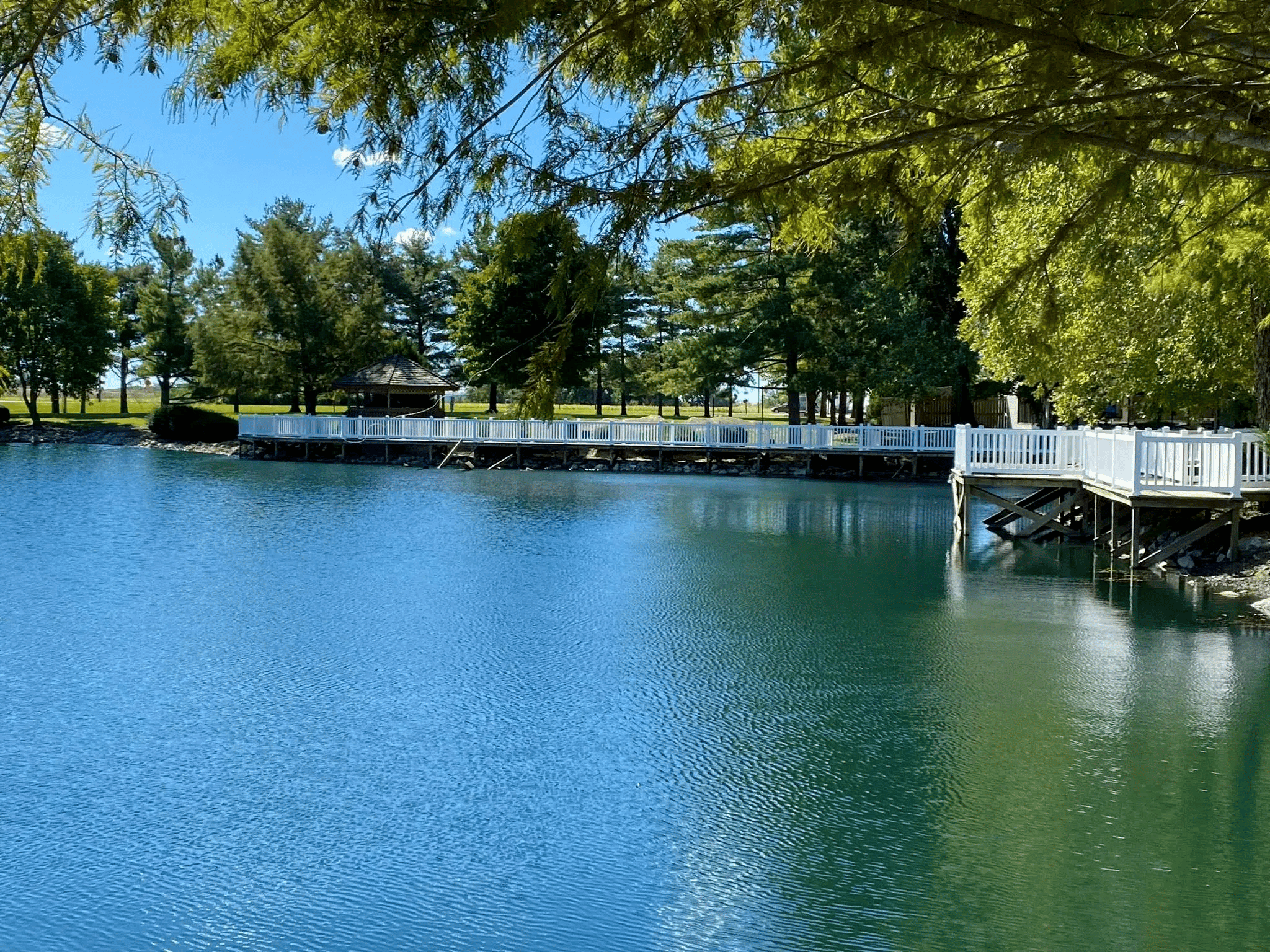
Lincoln Recovery - Raymond, Illinois
GET HONEST & ACCURATE QUOTE
2024 Best Rehab Centers in Aurora, Illinois
Lincoln Recovery - Upscale inpatient rehab facility with private rooms and 24/7 admissions team
- Private rooms
- Keep your phone and laptop
- Safe 24/7 monitored detox
- Non-12-Step options
- Dual diagnosis programs
- Thorough aftercare planning
Check your coverage and get informed on admission process! Call us at:
 555-555-5555*
555-555-5555*
*HIPPA Compliant and 100% confidential
MAXIMIZE YOUR INSURANCE COVERAGE WITH OUR HELP
We will work with insurance to get you the best possible coverage and minimize expenses.
For those looking for the best addiction rehab options in Aurora, Illinois, it can be challenging to know what is going into treatment for addiction, let alone what goes into making a rehab the best option out there. So, how does one find the best treatment facilities out there?
Find Illinois Rehabs By City:
| Bloomington | Chicago | Peoria | Aurora |
| Evanston | Joliet | Naperville | Rockford |
| Elgin | Springfield | Champaign | Waukegan |
| Cicero | Schaumburg | Arlington Heights | St Louis |
Other states: Rehabs in Texas, Rehabs in California, Rehabs in Colorado
Aurora, IL, has many addiction treatment facilities but choosing the one that fits your needs might be a bit challenging. It comes down to knowing what matters in your recovery, like living on campus, on-site detox, dual diagnosis, and the ability to choose the treatment protocols that work for you. Once you know what you’re looking for in rehab, you’ll be better prepared to narrow things down.
Since a long-lasting recovery from addiction comes down to finding treatment that works for you, we’ve made a list of the best rehabs in Aurora, Illinois:
Lincoln Recovery
Lincoln Recovery – If you’re seeking a place where you can become fully immersed in your recovery journey, then Lincoln Recovery might be the perfect place for you to get started. The staff at this facility believe that by offering tools and encouraging healthy habits, combined with group therapies, activities, and individual therapy, clients can begin to experience the drug and alcohol-free life they want to live.
When clients arrive at Lincoln Recovery, they are encouraged to take part in their treatment by talking about what seems interesting or engaging to them and helping to build a treatment plan with their recovery team. From there, the possibilities and potential successes are endless.
What Lincoln Recovery offers:
- Keep all of your technology from the beginning of treatment
- Calm, peaceful rural Illinois campus
- Feel like you’re eating at a restaurant every day with chef-prepared meals and snacks
- Indoor pool, workout room, and meditation room
- Planned and scheduled outings and activities
- Completely private rooms and bathrooms
- On-site detox facilities
- Partial hospitalization, residential, and intensive outpatient treatment options
If you’re looking for a place to get away and get to know yourself while you embrace your recovery journey, consider Lincoln Recovery.
- Address: 19067 W. Frontage Rd., Raymond, IL 62560
- Phone: 877-542-0678
Other Addiction Rehab Options
If you’re still unable to find the best rehab in Aurora, IL, you should know that there are many different rehabs throughout the country, and sometimes, we need to travel to get the treatment that works for us and who we are.
Chapters Capistrano
Are you in search of a luxury rehab center close to Las Flores? You’ll find a great facility in San Clemente, CA, called Chapters Capistrano. This center is known for its optimal patient-to-staff ratio, well-maintained facilities, and spectacular views of the Orange County coast.
Some of the other great features of Chapters Capistrano include:
- 24/7 medical assistance: The center prioritizes the safety of every patient. There is a designated medical staff so that patients will be healthy and their vitals are on-point as they stay in the rehab.
- Diverse treatment methods: From 12-Step to Non-12 Step rehab options, you can have a customized treatment plan that best fits your unique background and needs.
To know more about Chapters Capistrano, you may contact the following details:
Chapters Capistrano
- 1525 Buena Vista, San Clemente, CA 92672
- (877) 915-4139
- Chapterscapistrano.com
Monarch Shores
Another great rehab you can find in Orange County is Monarch Shores. This is a full-fledged center complete with detox, a treatment plan, and aftercare. It’s located in San Juan Capistrano, California, with a great view of the ocean. Monarch Shores is a highly-rated rehab with the following notable features:
- Technology-friendly: You don’t have to keep your phone, laptop, and other gadgets away. You can keep them while continuing to work or keeping in touch with loved ones during your stay in rehab.
- Empathetic staff: There’s no greater feeling than being listened to and people considering your needs. Monarch Shores are known for their kind and understanding staff.
To know more about Monarch Shores, please reach out to them with the following contact information:
- 27123 Calle Arroyo #2121, San Juan Capistrano, CA 92675
- (844) 893-3479
- Monarchshores.com
Mountain Springs Recovery
Mountain Springs Recovery is one of the best treatment centers near Boulder, CO. Located at a quiet, serene spot in Colorado Springs. This addiction treatment center has beautiful facilities and specialists who provide personalized care.
As a full-fledged center, Mountain Springs Recovery cares for every aspect of substance use disorder, starting with detox treatment and aftercare. Patients choose this center because of its great features, including:
- Technology access: You don’t have to give up your cell phone, laptop, and other gadgets. There’s access to WiFi for you to complete tasks or stay in touch with loved ones.
- Treatment options: From 12-Step to Non-12 Step, there are many treatment options, depending on your unique background and preferences.
- 24/7 care: Most people need round-the-clock care to manage withdrawal symptoms during the first few weeks of detox. Mountain Springs has 24/7 medical care, keeping patients safe and comfortable.
- Top facilities: Clean rooms, beautiful views, and access to recreational facilities make the treatment center an excellent choice for people seeking the best value for their resources.
For more about Mountain Springs Recovery, please contact the contact details below.
Phone: 888-383-0628
Address: 1865 Woodmoor Dr, Monument, CO 80132
Website: https://mountainspringsrecovery.com
Willow Springs Recovery
Willow Springs Recovery – Willow Springs Recovery is one of the premier rehab options in Dallas, Texas, and for a good reason. The sprawling 38-acre campus offers plenty of room to explore, enjoy activities and relax. Some clients say they are staying at a resort while working on their addiction recovery at Willow Springs, which is precisely how they are supposed to feel. This top-of-the-line facility encourages clients to make the most of the quiet, dig in, and enjoy all that recovery has to offer. In addition, an on-site detox ensures that clients get the best care – from intake to completion – so they can enjoy a successful recovery journey.
What you’ll find:
- Keep your phone and computer
- Pool, gym, and recreational activities
- Off-campus outings
- Healthy, chef-prepared meals
- Special dietary food preparation
- Individualized treatment plans to meet client needs
- Wide variety of treatment options
- Highly trained staff
Willow Springs Recovery believes that treatment should be enjoyable and that transitioning from active addiction to recovery should be smooth and gentle. You want to keep seeing the changes and beauty of living clean and sober every day.
What matters the most isn’t where you choose to seek treatment; it’s that you choose to make recovery an option. So why not get started finding your perfect rehab today?
Medical disclaimer:
Sunshine Behavioral Health strives to help people who are facing substance abuse, addiction, mental health disorders, or a combination of these conditions. It does this by providing compassionate care and evidence-based content that addresses health, treatment, and recovery.
Licensed medical professionals review material we publish on our site. The material is not a substitute for qualified medical diagnoses, treatment, or advice. It should not be used to replace the suggestions of your personal physician or other health care professionals.




